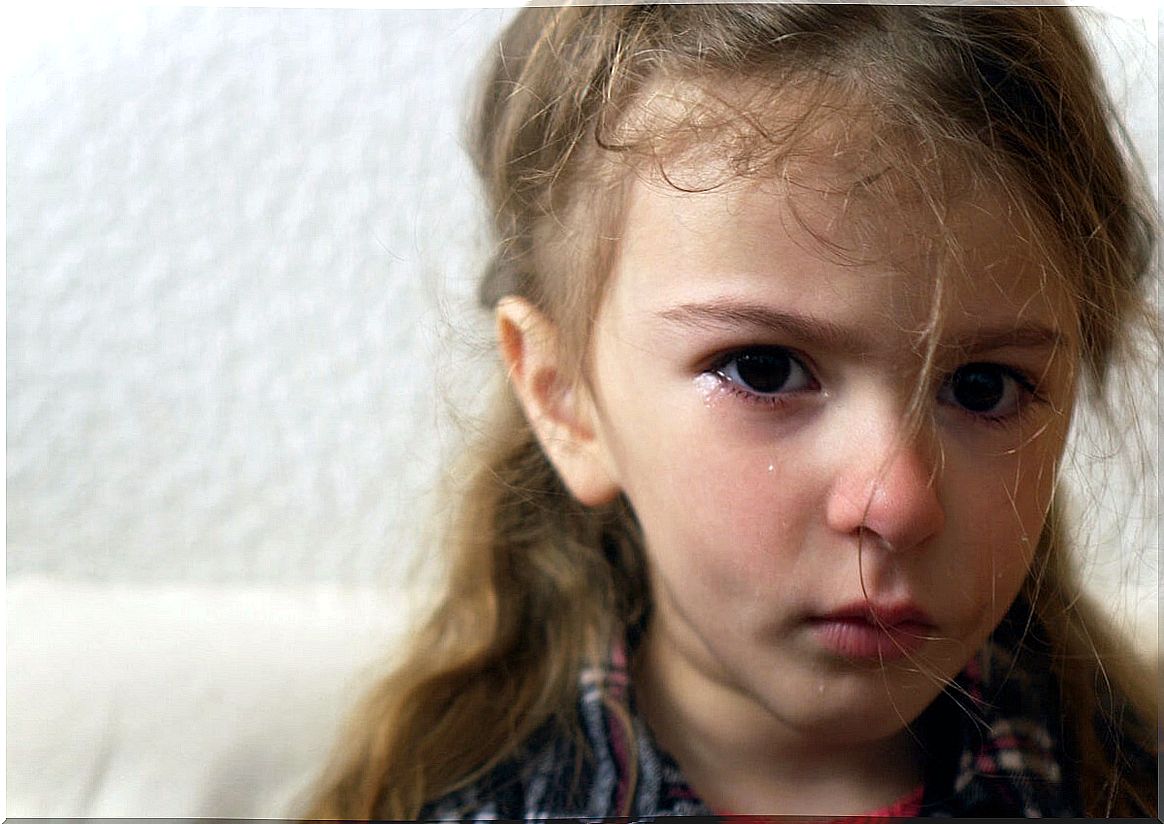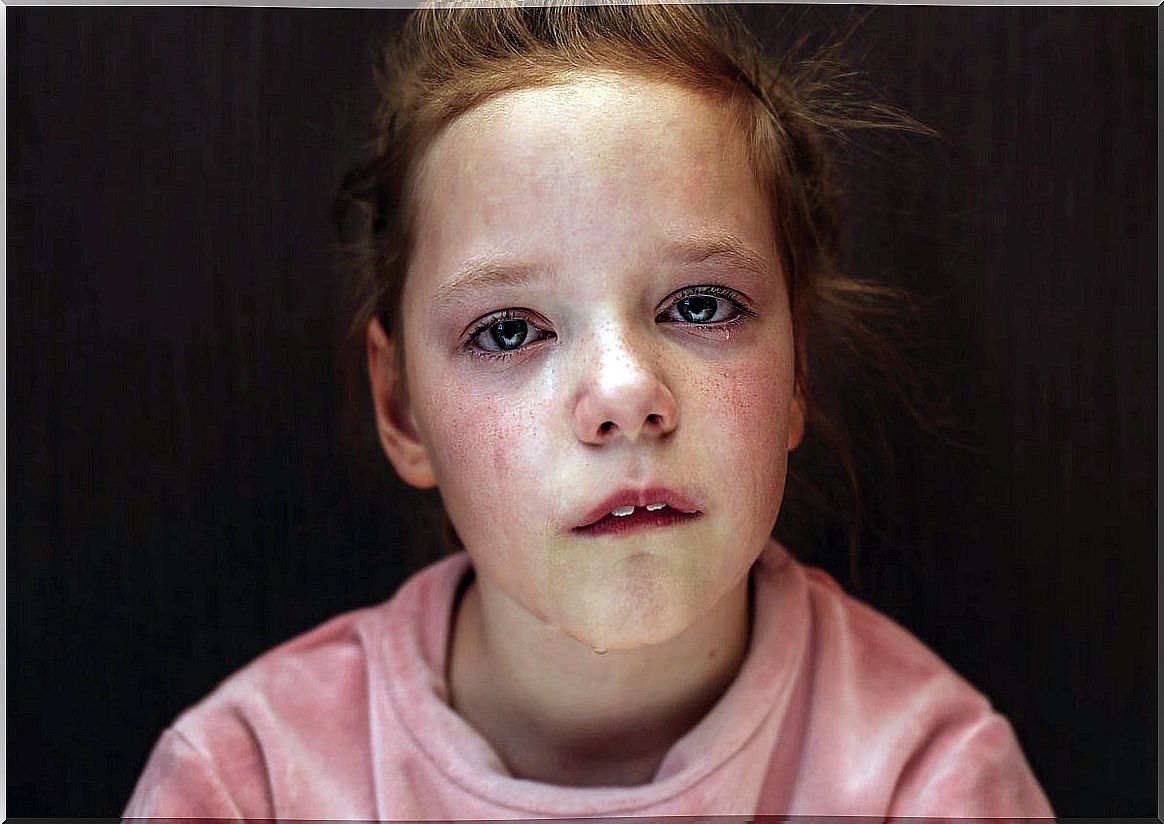The Invisible Child Syndrome: The Trace Of Affective Deficiencies

The invisible child syndrome is a condition in which a child does not receive the attention they need, especially on the emotional level, from their parents. As a result of this, an intense sense of abandonment ensues, feeling as if it does not exist or is invisible.
As a rule, children with this syndrome are irritable, distant, withdrawn, and isolated. Likewise, by not feeling loved and valued by their parents, they tend to create a fantasy universe to deal with loneliness.
Affective deficiencies lead them to remain isolated from groups. They may even feel like a “burden” on their family. Worst of all, they experience enormous guilt: they think they are responsible and deserving of what happens to them.

The evolution of the invisible child syndrome
When the invisible child syndrome occurs during the first years of life, it is reflected as a disconsolate cry and a disposition to irritability. There is also a marked state of anxiety and anguish due to the apparent rejection of the parents.
In the same way, as the child grows, he presents a rebellious attitude , his defiant attitude being very noticeable. Likewise, clumsiness in movements is common when performing different physical activities. This also leads to a delay in their psychological and motor development.
Despite this, these children tend to show an overflowing imagination , standing out for their sharpness. Ahead of their normative group in this sense, they tend to present serious limitations when it comes to functioning on the social plane.
They are often teased by their peers, further lowering their self-esteem. They perceive the environment as a threatening reality, which reinforces the feeling of guilt and leads them to experience constant states of sadness.
Some consequences
When not enough attention is paid to the needs of the child, especially in emotional terms, there is the possibility of invisible child syndrome. The effects will manifest themselves with greater intensity during adolescence: they become distrustful, insecure and easily manipulated.
They tend to become people willing to do anything to be accepted into a group or congregation. They also develop a tendency to seek comfort from drugs or alcohol in their adult life.
In the same way, problems in their relationships with others will be accentuated, giving rise to fragile ties that will be broken for any reason. In the most serious cases, the feeling of emptiness in their lives will be a constant, as will the frustration of failure.
What can be done
Undoubtedly, the best way to prevent the invisible child syndrome from occurring in a child is by providing the care it requires from the moment it is born. Permanent displays of affection, such as kisses, hugs and caresses, are very important.
It is essential to play with him, encourage him to express himself in his own words about what he likes and dislikes. Support you when you feel scared and value your accomplishments ; This strengthens your self-esteem.
It is also advisable to keep the communication channels open with him and help him to express his feelings, his moods and his conflicts. If this does not work, or the parents do not know how to do it, it will be necessary to consult a specialist.

Other aspects of abandonment
We must not lose sight of the fact that in the invisible child syndrome there can be both physical and psychological abandonment. In the first case, the results can be observed in the absence of personal care, a precarious state of health, malnutrition in some cases and the absence of physical activity, among others.
In the area of psychological abandonment, the consequences may be less obvious, but more important. The absence of social activities necessarily leads to living different levels of alienation. Sadness translates into a state of disappointment that easily ends in depression.
Thus, the lives of people affected by the invisible child syndrome are transformed into a space of uncertainty, but, above all, of feelings of anger and pain. Finally, it is worth clarifying that the best attitude to face this type of situation is prevention. If it is already present, all the necessary measures will have to be taken to overcome it.









